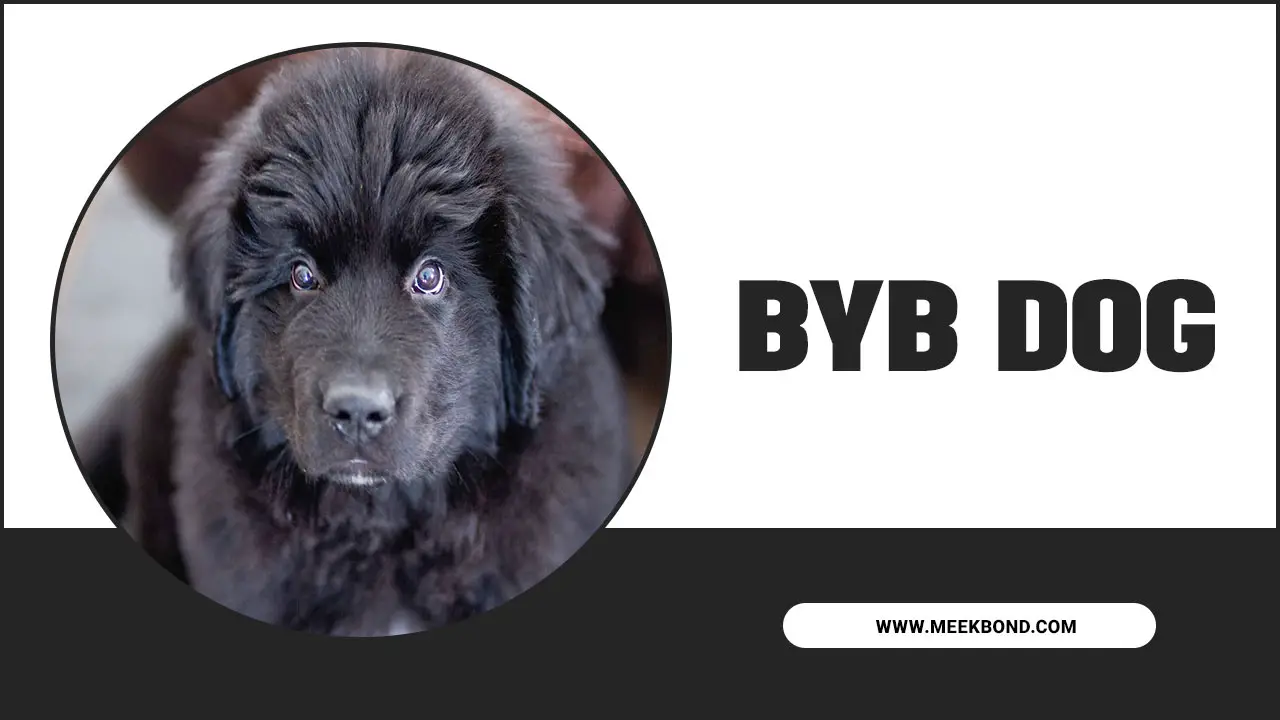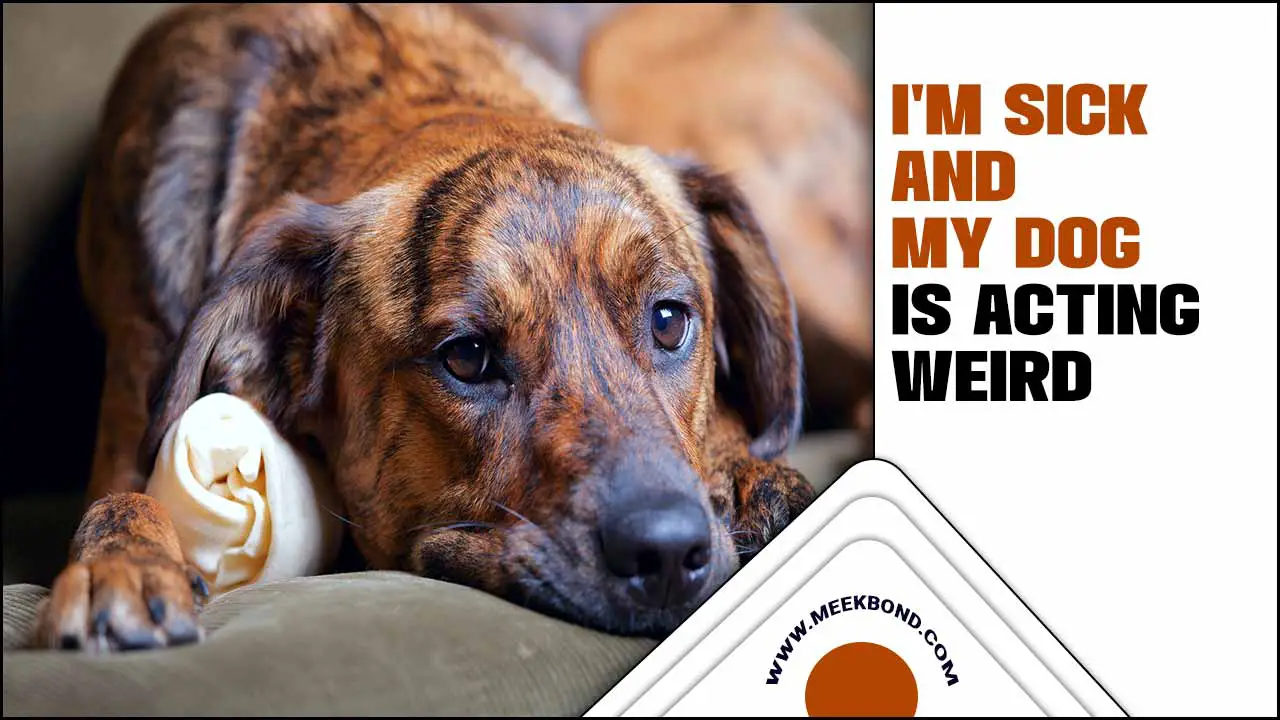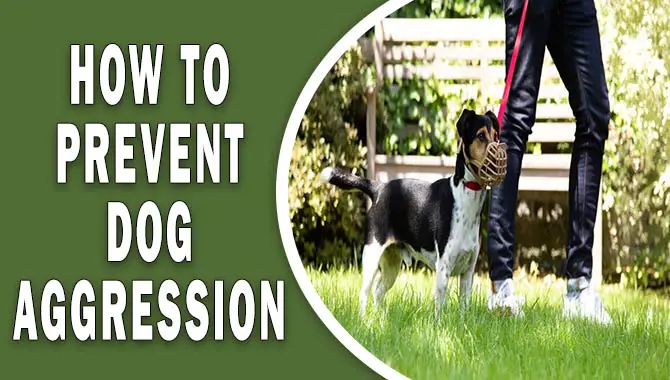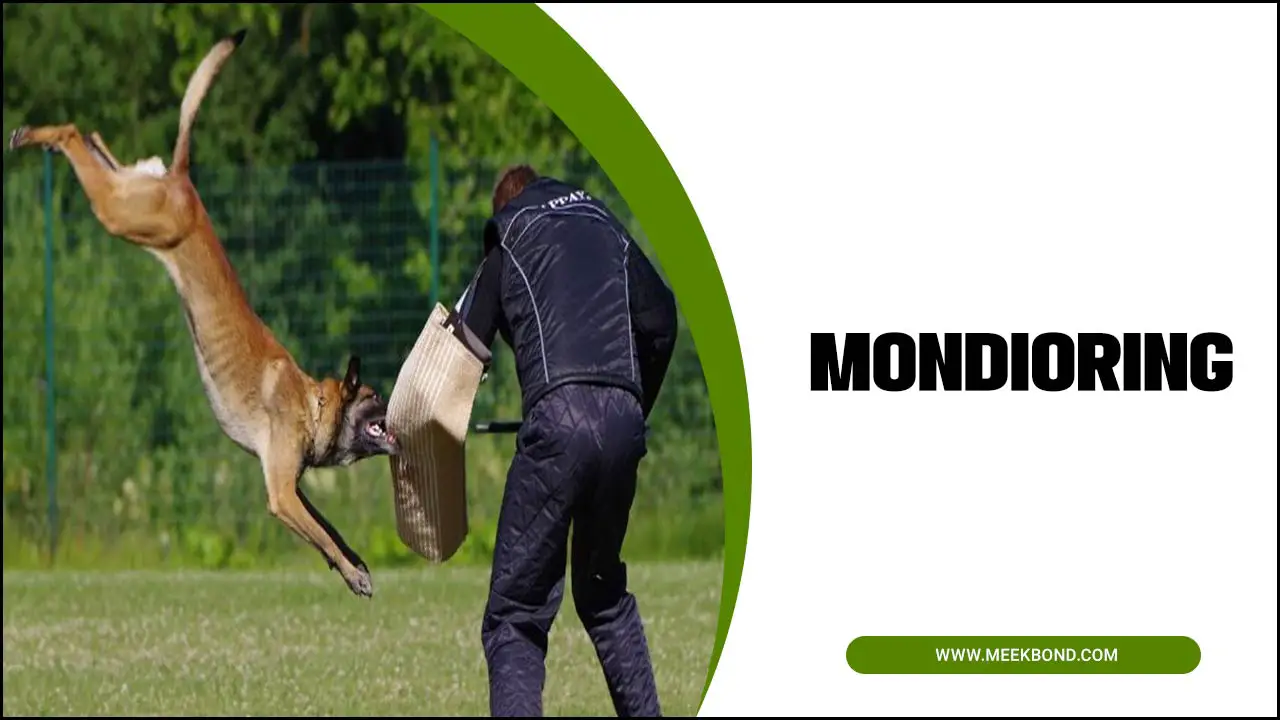Socializing a dog is an essential part of ensuring their well-being and happiness. It involves exposing them to various people, animals, and environments positively, which can help them develop confidence and reduce anxiety.
Socialization should begin early in a puppy’s life, but it is never too late. Dogs are social animals and thrive on human interaction. Just like humans, dogs need to be socialized too. Socialization introduces your furry friend to new experiences, people, and animals.
Not only does it improve their behavior in public places, but it also helps them become well-adjusted companions. We’ll start with early puppy socialization tips and move on to safe outings, leash training, and even puppy socialization classes. Additionally, we’ll discuss how to socialize a dog is crucial for their overall well-being and when you should start the process.
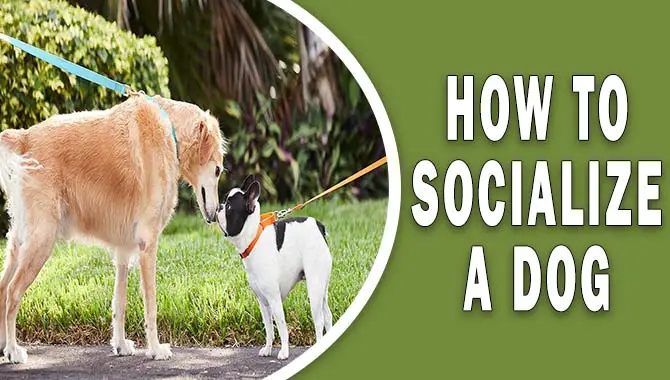
How To Socialize A Dog: Explained
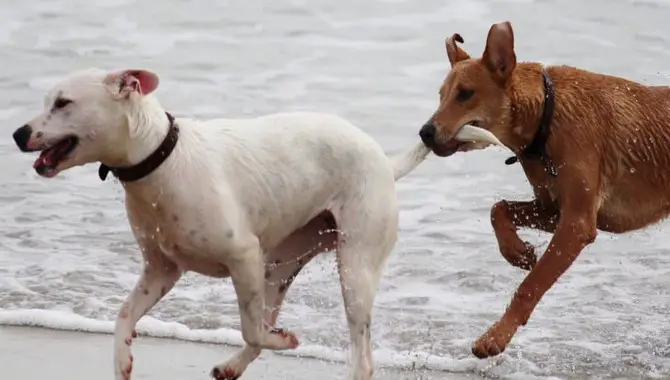
Socializing a dog is an essential part of ensuring that it can interact with other dogs and people safely and positively. The process involves exposing your dog to different social situations and environments, such as dog parks, training classes, and playdates with other dogs.
To begin socializing your dog, introduce them to new people and dogs slowly and gradually. This can help them feel more comfortable and confident in new situations. Positive reinforcement techniques, such as treats and praise, can also encourage good behavior.
It is essential to be patient and consistent when socializing your dog. Socialization is an ongoing process that requires time and effort. By taking the time to socialize your dog correctly, you can help them develop into a well-adjusted and happy companion.
Socializing your dog is integral to their development and can help prevent behavioral issues. When it comes to socializing a dog, you can take a few key steps to ensure that they become well-adjusted and confident in various situations. Here’s how to socialize a dog:
Setting Realistic Goals For Socialization
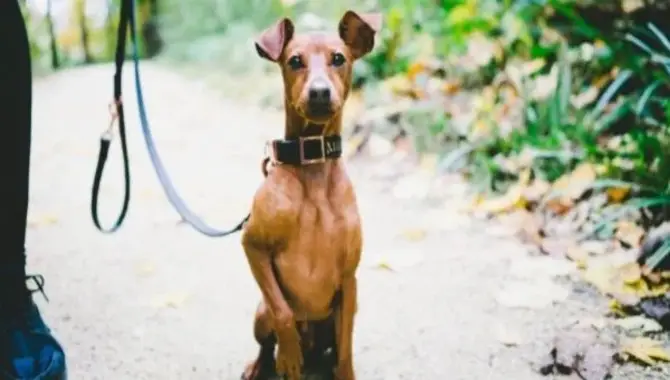
When it comes to socializing a dog, setting realistic goals is critical. It is important to remember that every dog is different and will have unique challenges regarding socialization. Start by evaluating your dog’s current level of comfort around people and other animals.
Then, set small, achievable goals for them to work towards. For example, if your dog is nervous around strangers, start by introducing them to one new person at a time in a controlled environment.
As they become more comfortable, the number of people or animals they are exposed to gradually increases. Remember always to prioritize your dog’s safety and well-being throughout socialization. You can help your furry friend become a confident and socialized pup with patience and consistency.
Starting Small With Adult Dogs
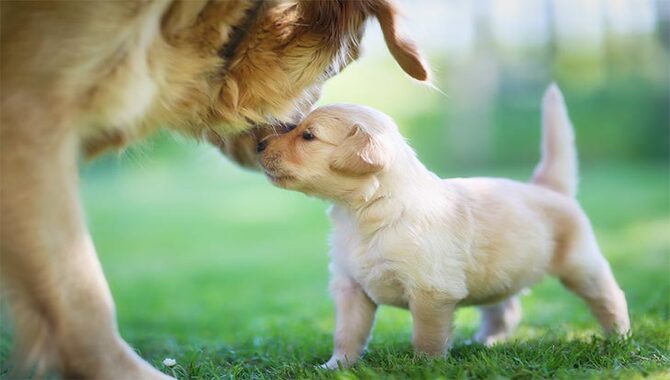
When socializing adult dogs, it’s starting small and gradually increasing their exposure to new situations is essential. Begin by introducing your dog to new people in a controlled environment, such as a quiet room or backyard. Allow them to approach new people on their terms, and encourage positive interactions with treats and praise.
As your dog becomes more comfortable with new people, you can introduce them to other dogs in a similarly controlled setting. Remember that every dog is different and may require different approaches to socialization. Patience, consistency, and positive reinforcement are key when socializing adult dogs. Your furry friend will become more confident and comfortable in various social situations with time and effort.
Slow And Steady Steps For Socialization
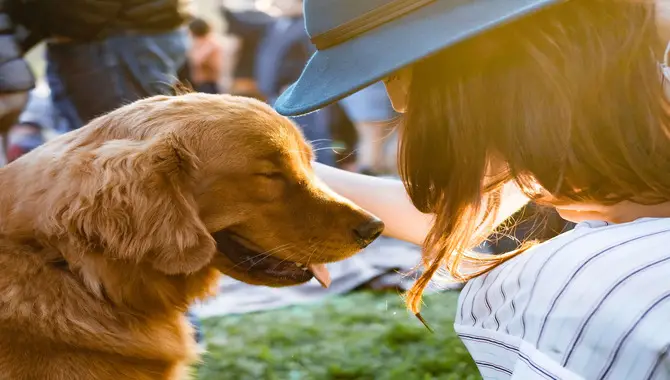
Proper socialization for your furry friend is a lifelong process that requires slow and steady steps. Begin by introducing your pup to familiar people before gradually exposing them to new experiences like car rides or visits to the veterinarian or groomer.
Repetition of positive experiences with different types of people, different dogs at dog parks, or puppy kindergarten classes will have a positive association in their minds. Make sure to reward your pup with treats and praise so that they develop good habits early on. This way, you avoid future behavioral issues like separation anxiety or barking at unfamiliar people while walking.
Cautionary Tips For Socializing A Dog
Socializing a dog can be a great way to help them become well-adjusted and confident in different situations. However, it is essential to approach socialization with caution and care. For example, introducing your dog to new people or animals too quickly or aggressively can make the situation worse and cause your dog to become anxious or fearful.
It is essential to take things slow and gradually expose your dog to new experiences in a positive and controlled manner. Additionally, always pay attention to your dog’s body language and behavior during socialization sessions, as this can give you valuable insight into how they feel and whether they are comfortable with the situation.
Taking a cautious approach to socialization can help ensure that your dog has positive experiences and develops healthy social skills.
Avoiding Unsafe Interactions At Dog Daycares
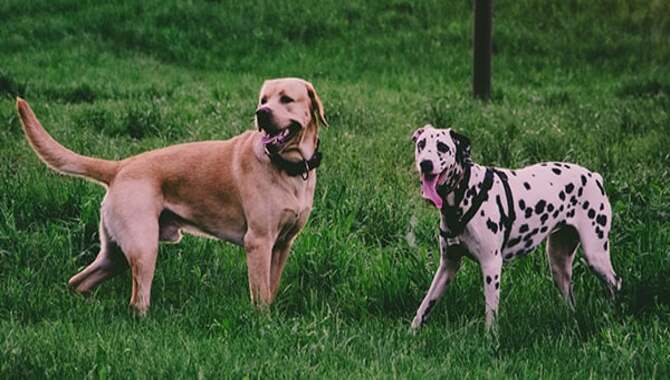
Choosing a reputable daycare is crucial when socializing your puppy. Look for a facility requiring vaccinations and knowledgeable staff trained in canine behavior. Observe beforehand to ensure appropriate supervision and enrichment activities.
Avoid daycares with aggressive dogs or overcrowded play areas as they may pose a risk to your furry friend’s safety. Continuously monitor their behavior for signs of stress or discomfort after daycare. Remember to seek professional help if necessary.
Monitoring Your Dog’s Interactions At Dog Parks
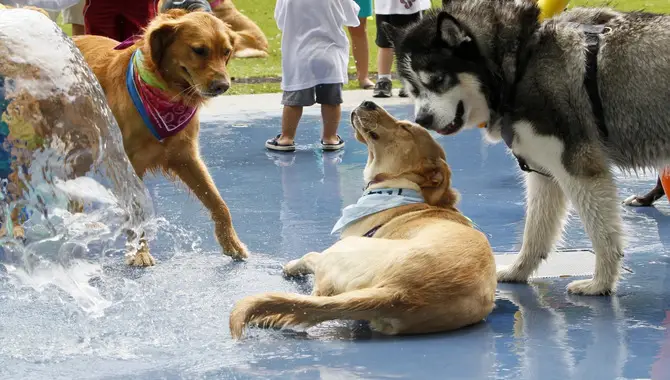
When socializing your dog, taking them to a dog park to interact with other dogs can be tempting. However, carefully it’s monitoring their interactions is essential to prevent potential conflicts or injuries. Keep an eye on your dog’s body language and behavior, as well as the behavior of the other dogs in the park.
Be prepared to intervene if necessary, whether calling your dog away from a potentially aggressive situation or stepping in between two dogs that are getting too rough with each other.
Additionally, it’s a good idea to start with shorter visits and gradually work up to longer ones as your dog becomes more comfortable and confident in social situations. By being vigilant and proactive about monitoring your dog’s interactions at the dog park, you can help ensure they have positive social experiences and build healthy relationships with other dogs.
Addressing Fear Aggression In Dogs
Socializing a dog is integral to its development, but fear of aggression can make it difficult. Fear aggression can manifest in various ways, from growling and barking to biting and snapping. It is essential to address fear aggression in dogs early on to prevent it from becoming a more significant issue.
One approach is counter-conditioning, which involves exposing the dog to the thing they are afraid of (such as other dogs or people) in a controlled and positive environment. This can help the dog associate positive experiences with the previously feared stimulus.
Another approach is desensitization, which involves gradually exposing the dog to the feared stimulus at low intensity and gradually increasing it over time. Seeking guidance from a professional dog trainer or behaviorist may also help address fear aggression in dogs during socialization training.
Early Puppy Socialization Tips
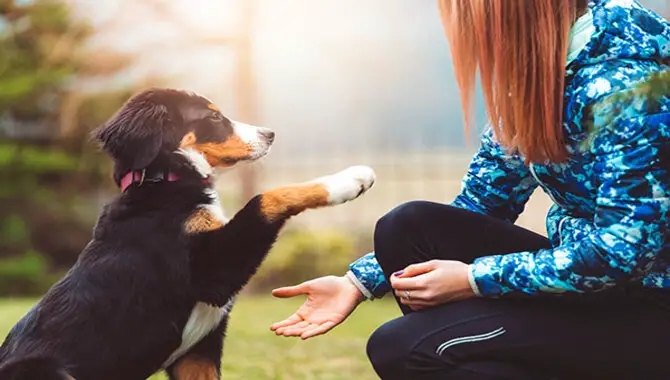
Early puppy socialization is crucial for creating a well-adjusted, friendly dog. Socializing your puppy is crucial for their development and well-being. Early puppy socialization can help prevent behavioral problems and make a happier, well-adjusted dog.
Here are some tips for socializing your puppy. Following these tips and remaining consistent with socialization efforts can help set your puppy up for a lifetime of healthy social interactions.
- Start early. Puppies are most receptive to new experiences between the ages of 3 and 14 weeks, so it’s important to start socializing them as early as possible.
- Introduce them to different people and animals. Expose your puppy to various people, dogs, cats, and other animals in a controlled environment. This can help them learn how to interact appropriately with others.
- Use positive reinforcement. Reward your puppy with treats and praise when they exhibit good behavior during socialization sessions. This will help reinforce positive behaviors and encourage them to continue behaving well in the future.
- Be patient. Socialization takes time and patience. Don’t overwhelm your puppy with too many new experiences at once, and be prepared to take things slow if they show signs of fear or anxiety.
Safe Puppy Outings And Leash Training
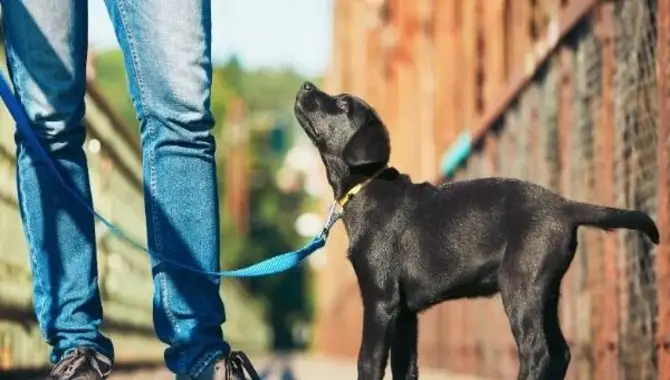
Safety and comfort should be a priority when taking your furry friend on outings as part of proper socialization or leash trainingy. Gradually introduce your pup to different people or animals to ensure a positive experience.
Consider starting with low-stress situations that are not overwhelming for your pup, like car rides or walking outside with sunglasses on. Monitor their body language and reactions closely, as signs of stress or anxiety could indicate behavioral issues later.
Properly introducing different types of people or unfamiliar objects, such as a vacuum cleaner or dishwasher, can help your puppy develop positive associations with these sights and sounds in the future.
Puppy Socialization Classes
Enrolling your pup in puppy socialization classes is a great way to introduce them to new experiences and furry friends. A controlled environment helps puppies learn how to interact positively with different types of people and dogs.
In these classes, pups participate in supervised playtime, get obedience training, and encounter new sights, sounds, and smells. It’s shooing a reputable class taught by experienced professionals using positive reinforcement techniques is crucial. This type of proper socialization can prevent behavioral issues down the line.
Importance Of Socializing Your Dog
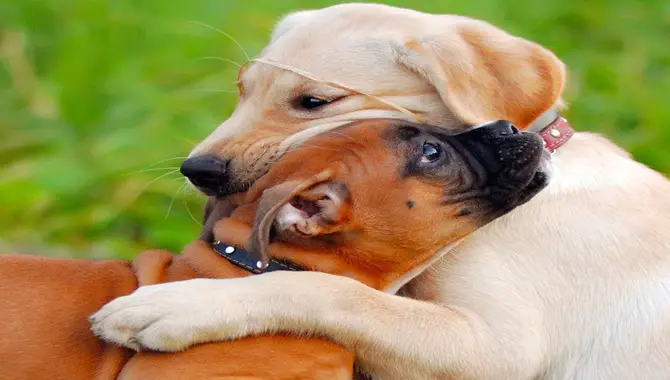
Proper socialization is essential for preventing aggression in pets towards unfamiliar people and other animals. Socializing creates positive experiences for your furry friend, builds confidence, and improves communication skills. Safe puppy outings are an excellent way to expose your pup to new experiences like car rides or the vet with proper leash training.
Puppy kindergarten is a good idea and provides supervised playtime while learning new tricks, providing positive reinforcement, and creating a positive association with grooming tools like the vacuum cleaner or dishwasher.
Benefits Of Socializing A Dog
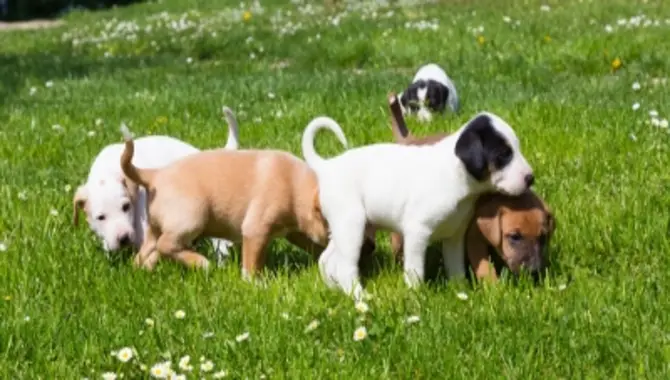
Socializing your dog can have numerous benefits for both you and your furry friend. When properly socialized, dogs are more likely to be well-behaved around other people and animals, making it easier to take them out in public.
Socialization can also help to reduce a dog’s anxiety and fearfulness, making them happier and more confident overall. Additionally, a well-socialized dog is less likely to exhibit aggressive behavior, which can help to prevent conflicts with other dogs and humans. So if you want a happy, well-adjusted pup who loves meeting new friends, prioritize socialization in your training routine.
When Should You Socialize Your Dog?

Socializing your dog is an integral part of their overall development and well-being. But when should you start this process? The answer is simple: as early as possible. Puppies are most receptive to socialization between the ages of 3 and 14 weeks, so it’s essential to expose them to various people, animals, and environments during this critical window.
However, if you have an older dog that has not been socialized or has had negative experiences in the past, it’s never too late to start. The key is to take things slow and make the experience positive for your furry friend. Gradually introduce them to new people and situations while providing plenty of praise and treats. You can help your dog become a confident and well-adjusted member of society with patience and consistency.
Conclusion
Socializing your dog can be a fun and rewarding experience for you and your furry friend. It helps them become well-rounded, confident, and happy dogs comfortable in different situations. A correctly socialized dog is less likely to exhibit aggressive behavior or anxiety when exposed to new people, places, and things.
However, it is essential to remember that socializing a dog is not a one-time event but an ongoing process. Be patient, start small, and monitor your dog’s interactions closely. By exposing your dog to different people, animals, and environments, you can help them develop the skills they need to be well-adjusted and happy pets. We hope now you understand how to socialize a dog.
Frequently Asked Questions
When Is The Best Time To Start Socializing A Puppy?
It’s important to socialize puppies between 3-14 weeks of age when they’re most open to new experiences. Socialization should involve exposure to various people, animals, and environments positively and gradually. Proper socialization can prevent future behavioral issues.
What Are Some Common Mistakes To Avoid When Socializing A Dog?
Socializing a dog can be tricky, but some common mistakes to avoid include not forcing them into social situations they’re not ready for, refraining from punishing fearful or aggressive behavior during socialization, avoiding overwhelming them with too many new experiences at once, and steering clear of potentially dangerous dogs or situations during socialization.
How Can I Help My Dog Overcome Fear Or Anxiety During Socialization?
Start with small and low-pressure interactions to help your dog overcome fear or anxiety during socialization. Reward good behavior with positive reinforcement techniques and consider seeking the help of a professional trainer or behaviorist. Remember, socialization can be a slow process and requires patience and understanding.
What Are Some Signs That My Dog May Be Feeling Anxious Or Uncomfortable During Socialization?
During socialization, watch for signs of anxiety such as trembling, panting, excessive barking, hiding, or aggression (growling, biting). Pay attention to your dog’s behavior and approach slower if discomfort is observed.
Are There Any Professional Resources Available For Help With Socializing A Dog?
Yes, various professional resources are available for help socializing a dog. Expert dogs, trainers, and behaviorists offer personalized guidance on socialization techniques. Local animal shelters may provide classes or referrals to qualified professionals. Online resources like articles, videos, and forums can also provide valuable information on socializing dogs.

Aquarium passion is all about connecting with the aquatic life and providing education to the public on the importance of these creatures. We showcase a wide variety of marine life through our exhibits as well as working with schools to provide unique learning opportunities for students of all ages.

